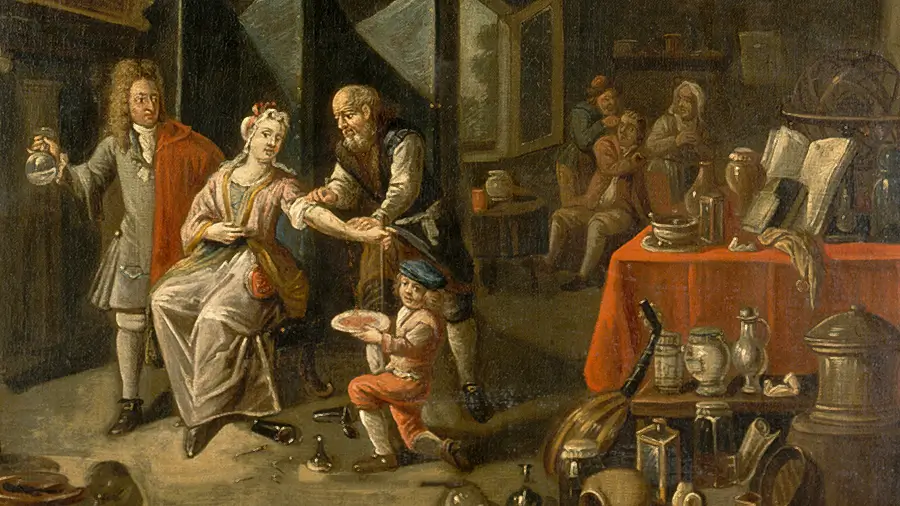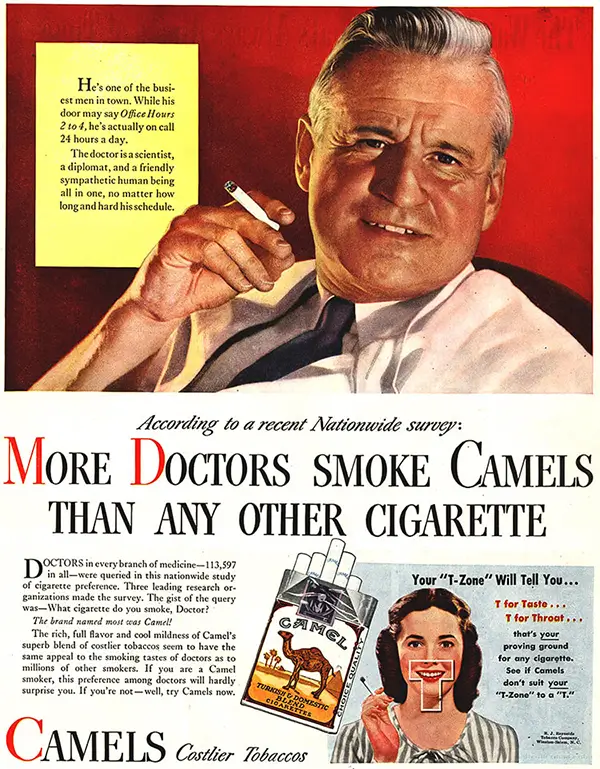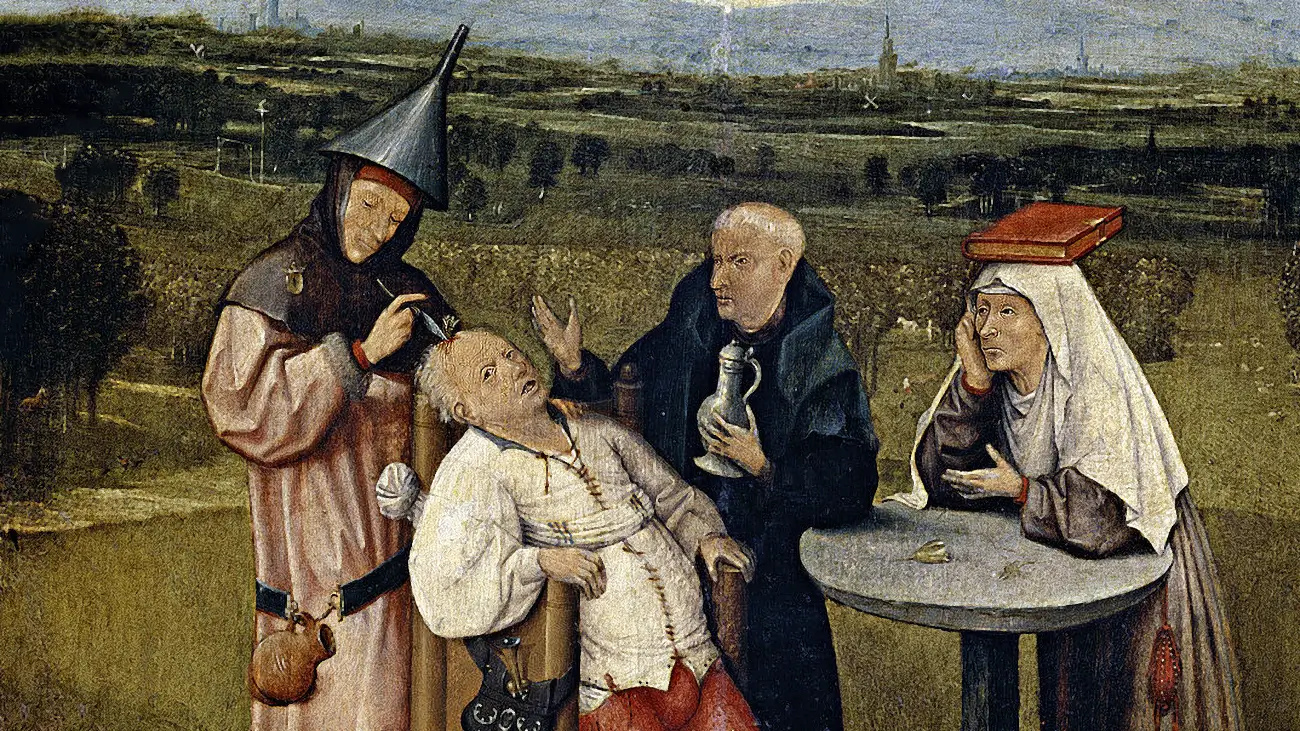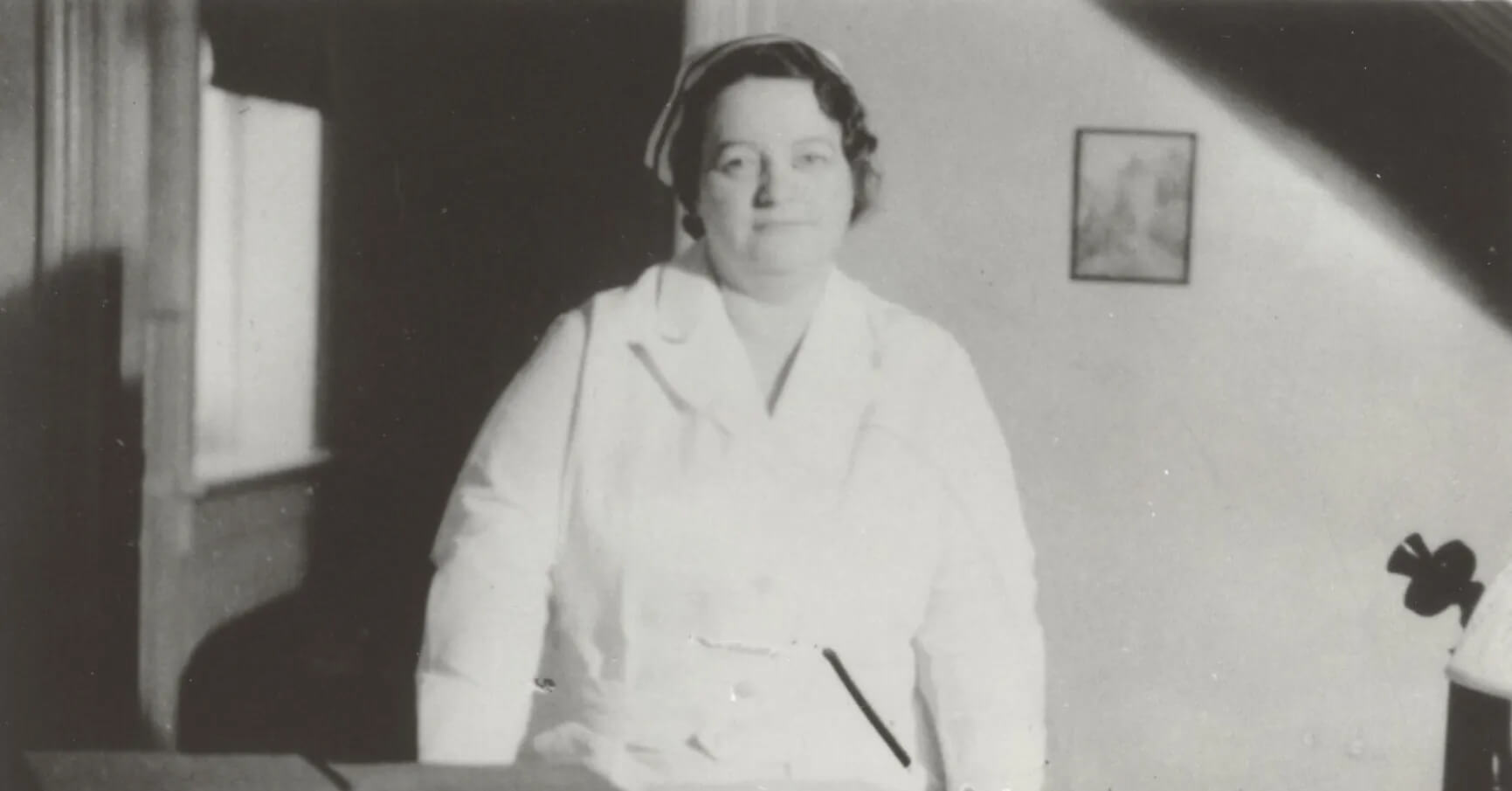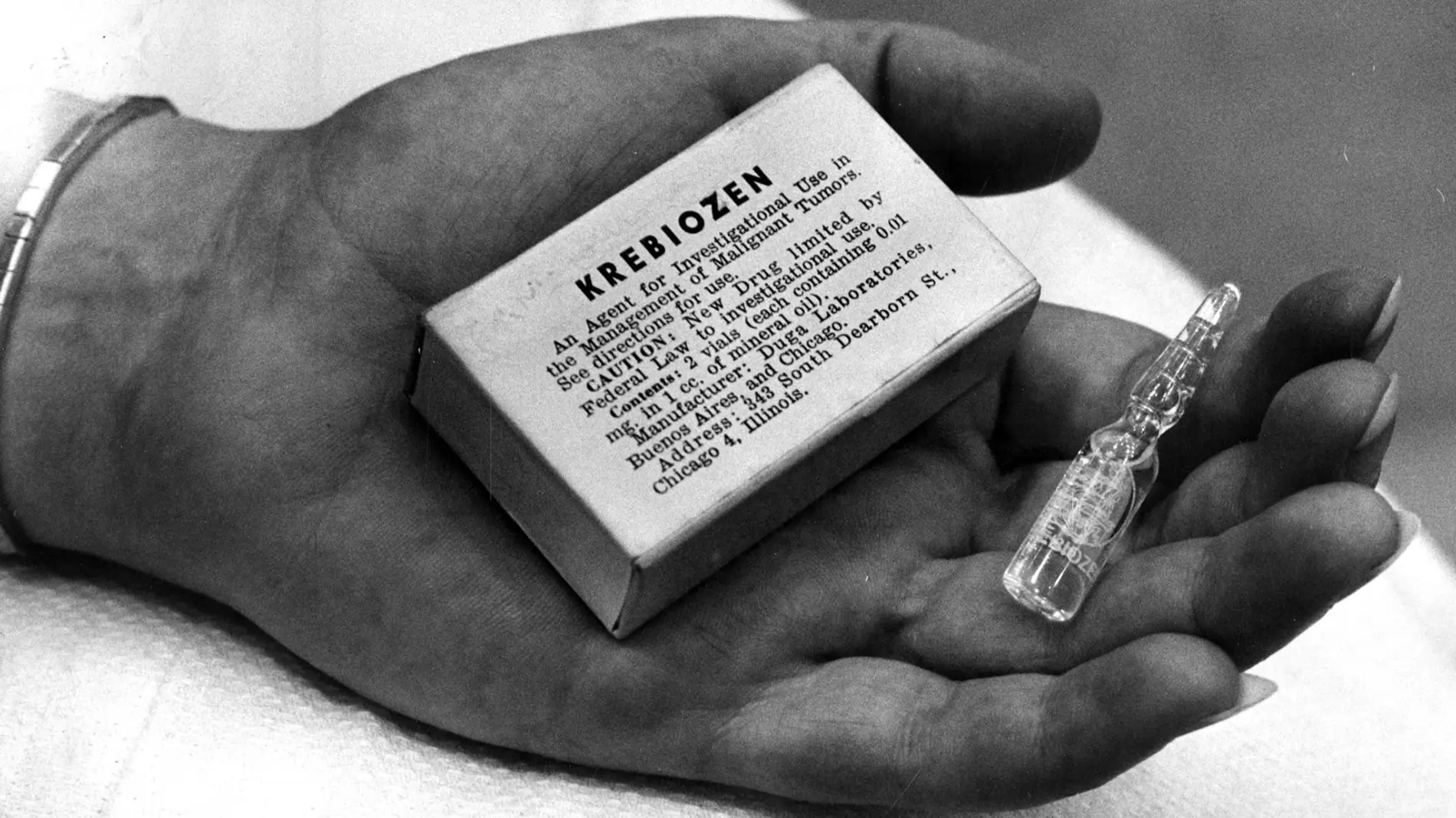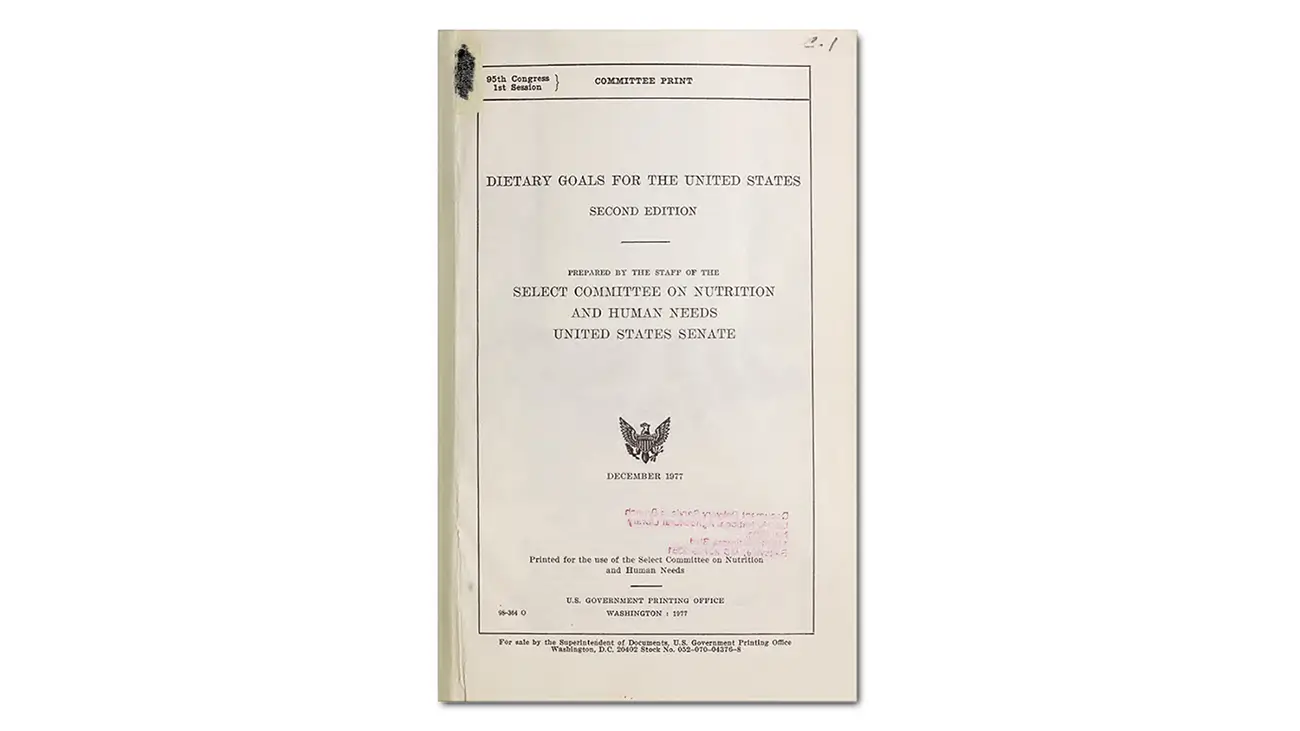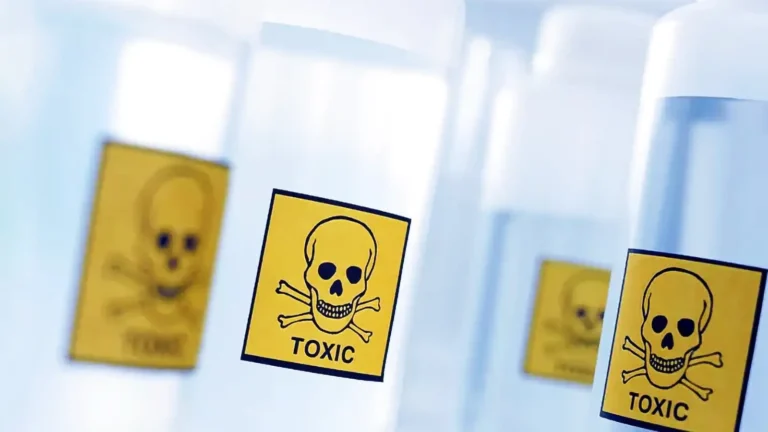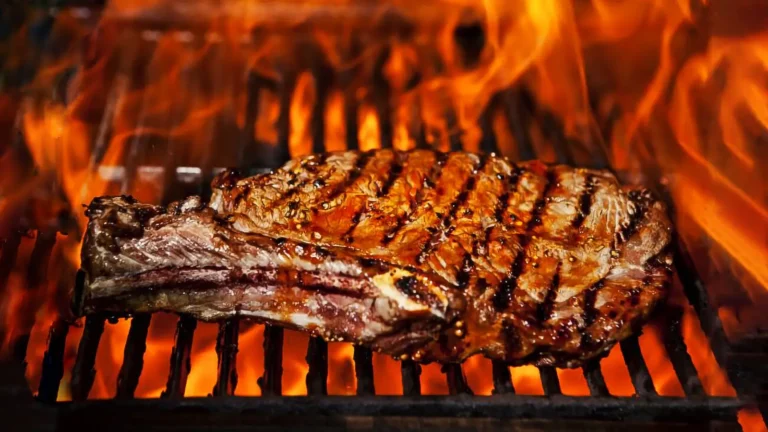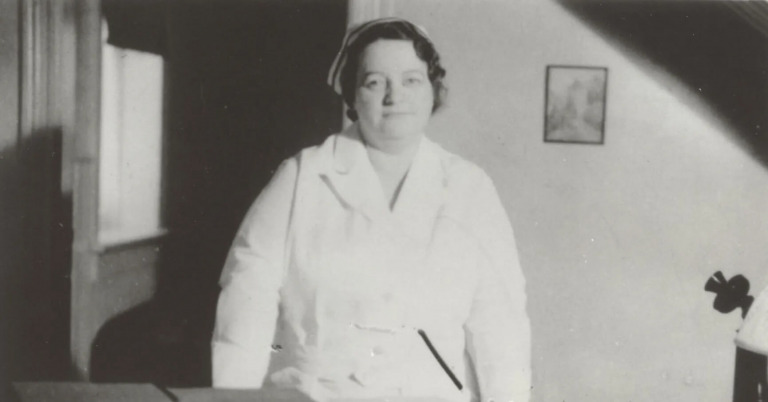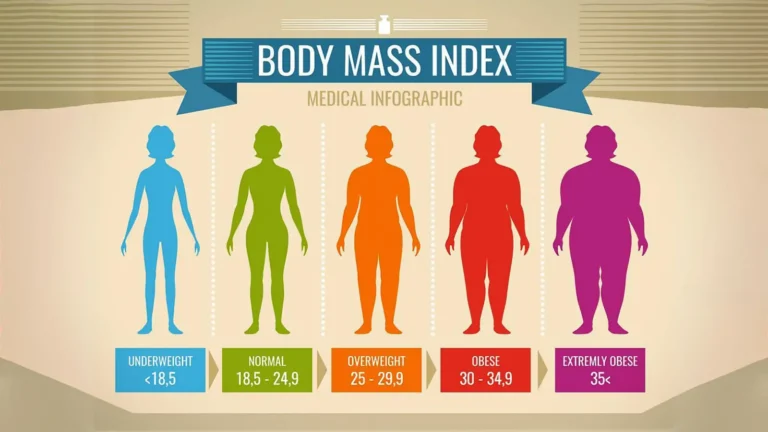Médecine Allopathique - L'essor d'Une Industrie
L'équilibre des branches médicales est resté égal au tournant du XXe siècle environ, lorsque de nouveaux traitements médicaux sont apparus, potentiellement très rentables.
Milos Pokimica
Écrit par : Milos Pokimica
Examiné Médicalement Par : Dr. Xiùying Wáng, M.D.
Mis à jour le 9 juin 2023Il y a environ 100 ans, la médecine allopathique moderne a finalement réussi à neutraliser les soi-disant médecins empiriques ou les guérisseurs holistiques ou naturels. Ils ont été qualifiés d'empiriques parce qu'ils n'ont utilisé que des observations empiriques sans aucune forme de science. La connaissance a été transmise d'une génération à l'autre sous la forme d'herbes naturelles et d'une autre forme de médecine populaire. Dans les années 1800, la société était divisée entre deux formes de médecine et il y avait la réglementation des deux formes avec des lois et des restrictions de manière égale. Les patients avaient le choix d'utiliser les deux formes de traitement, les allopathes et les empiriques. Les médecins allopathes (modernes) appelaient leur approche la médecine héroïque et croyaient en l'utilisation de poisons pour traiter agressivement les maladies. Ils appelaient leur pratique la théorie scientifique. Ils ont utilisé trois techniques principales.
- Ils saignaient le corps pour drainer les mauvaises toxines comme au moyen-âge. Pendant la peste du moyen âge, la pratique thérapeutique consistait à ouvrir les veines menant au cœur. Ceci, dans leur esprit, devrait permettre à la maladie de quitter le corps. Les gonflements associés à la peste noire ont également été ouverts pour permettre à la maladie de partir. Ils ont continué à utiliser cette forme de pratique.
- Ensuite, ils donnent d'énormes doses de métaux lourds toxiques comme le mercure qui conduisent à déplacer la maladie d'origine.
- Ils ont également utilisé la chirurgie qui était la meilleure méthode de toutes. Ils ont étudié scientifiquement l'anatomie humaine et croyaient au même principe de traitement agressif des maladies en les supprimant.
Les médecins empiriques croyaient au potentiel d'autoguérison du corps humain naturel et n'utilisaient aucune forme de chirurgie. Ils n'autorisaient même pas le perçage de la peau humaine sous quelque forme que ce soit. Ils ne pratiquaient donc pas la chirurgie. À l'époque, il s'agissait d'une méthode brutale sans anesthésie ni contrôle de l'infection. Même les mauvaises dents faisaient l'objet de procédures d'extraction douloureuses et vitales, sans antibiotiques. Les allopathes pratiquaient également cette chirurgie. À l'époque, la plupart des patients craignaient les méthodes allopathiques et, dans des cas pas si rares, les patients mouraient des suites de la guérison. Les guérisseurs empiriques, contrairement aux médecins, croyaient qu'il fallait stimuler les défenses du corps pour qu'il se guérisse lui-même. Ils utilisaient des produits végétaux, des herbes et des substances non toxiques en petites quantités. En général, si le traitement échouait, ils n'aggravaient pas l'état de la maladie, et si le patient mourait, il mourait de la maladie elle-même et non du remède comme le mercure ou la saignée.
L'équilibre et la coexistence des deux branches médicales sont restés égaux jusqu'à vers le tournant du siècle quand de nouveaux traitements médicaux sont apparus, potentiellement très rentables.
L'American Medical Association a été rejointe et influencée par de fortes forces financières et de contrôle et a transformé la médecine en une industrie. Les cartels bancaires internationaux ou en noms personnels Rockefeller, Morgan et Carnegie ont financé la chirurgie, la radiothérapie et les drogues synthétiques. Carnegie a ensuite vendu toutes ses entreprises à Morgan et est devenu un philanthrope. Rockefeller et Morgan étaient parmi les fondateurs et actionnaires de la Réserve fédérale (une banque privée qui contrôle toujours dans une large mesure l'économie américaine et mondiale) et étaient également des monopoles de l'industrie lourde et de l'industrie pétrolière. Ils devaient devenir les fondements commerciaux de la nouvelle industrie médicale.
Une prise de contrôle des facultés de médecine a permis une prise de contrôle de l'ensemble de l'industrie médicale. Carnegie, en particulier, est entré en scène et a déclaré qu'il mettrait des finances. Ils ont investi d'énormes sommes d'argent dans la création de la nouvelle industrie, en particulier dans les écoles qui se complaisaient à coopérer avec eux. Pour l'argent qu'ils ont dépensé, ils ont eu une demande pour mettre certains de leurs gens sur un conseil d'administration pour s'assurer que leur argent est dépensé judicieusement. Ce qui se passe, c'est que toutes les grandes universités ont reçu d'importantes subventions de ces personnes et ont également accepté une ou plusieurs de ces personnes au sein du conseil d'administration. Maintenant, ils n'étaient pas là pour répandre la science et l'apprentissage dans la poursuite du bien-être social et du bonheur humain. Ils ont été mis là comme un ensemble plus large de plans pour assurer l'intérêt des banquiers. Presque du jour au lendemain, les écoles ont été prises en charge. Les écoles ont reçu de grosses sommes d'argent, et elles l'ont dépensé pour de nouveaux équipements coûteux et ont construit de nouveaux bâtiments et de nouveaux laboratoires, et ont embauché plus de chercheurs et d'enseignants. Cependant, en même temps, ils ont vendu leur intérêt à l'industrie en pleine croissance appelée médecine dominée par des sociétés pharmaceutiques nouvellement créées. Les médecins à partir de cette époque de l'histoire apprendraient les médicaments pharmaceutiques et les formes allopathiques de médecine interventionnelle au profit des intérêts financiers privés du cartel bancaire international dirigé par Rockefellers et Morgan.
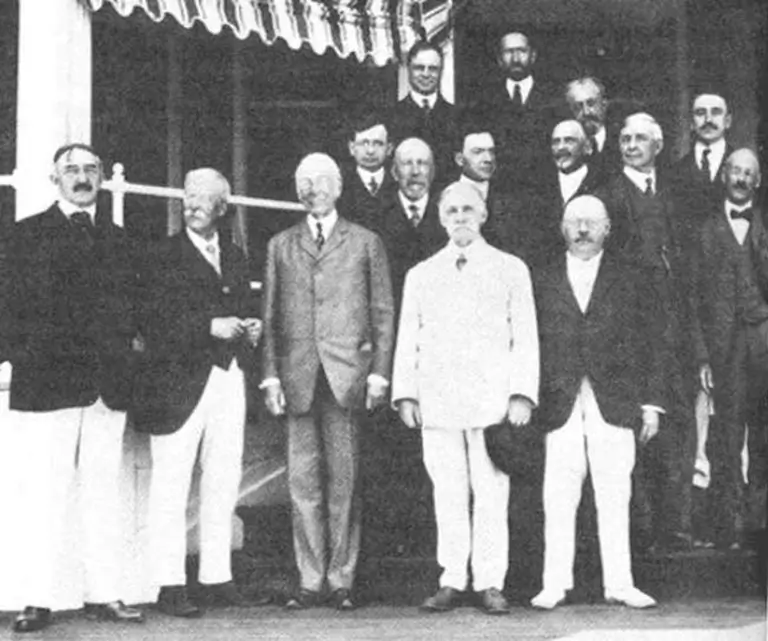
Sur la photo, on peut voir les administrateurs du General Educational Board, la première fondation Rockefeller, lors d'une retraite à Rockland, dans le Maine, en juillet 1915. Outre Rockefeller, au centre, on peut voir par exemple Charles W. Eliot (ancien président de l'université de Harvard), Harry Pratt Judson (président de l'université de Chicago) et bien d'autres personnes "importantes" qui, en se réunissant de la sorte, ont créé ce que l'on appelle un conflit d'intérêts.
C'est incroyable le peu d'argent qu'il a fallu pour le faire. À cette époque, la chirurgie est devenue un aspect plus important de la médecine allopathique en raison de l'anesthésie et du contrôle des infections et les médecins ont de plus en plus préconisé l'utilisation et la recherche d'opérations coûteuses comme remède pour toutes les maladies où elles peuvent être mises en œuvre. Ensuite, le grand et lucratif système hospitalier a été construit et la fièvre du radium a balayé la médecine. Le prix du radium a augmenté de 1000 % du jour au lendemain. L'industrie pharmaceutique est née de l'essor de la médecine brevetée. Les écoles ont modifié les normes d'éducation et les réglementations en matière de licences pour exclure les données empiriques. Seuls les médecins agréés par l'AMA pouvaient exercer légalement la médecine. La campagne médiatique a été lancée pour répandre la peur et associer l'empirie aux charlatans et au danger.
Malheureusement, l'"industrie" médicale et le gouvernement ont été pris en main par des intérêts particuliers et la situation n'a pas changé jusqu'à aujourd'hui. Et c'était très simple. Rockefeller, Morgan et Carnegie ont d'abord pris le contrôle du système d'enseignement. Ils ont ensuite donné à l'AMA le pouvoir d'exclure de la pratique tous les empiriques et les médecins qu'ils n'aimaient pas. Ils ont ensuite pris le contrôle de l'ensemble du processus de test des médicaments en influençant fortement les publications médicales qui examinent ces médicaments et en contrôlant les médias traditionnels. Enfin, ils ont étendu leur contrôle sur la FDA, qui est censée vérifier la sécurité et l'efficacité de ces médicaments.
Le médecin moyen à l'école de médecine d'aujourd'hui reçoit une excellente éducation, il en sait beaucoup sur les médicaments et la chirurgie, mais il ne sait rien sur la nutrition. Et il a appris à associer la nutrition au charlatanisme et à se taire et à suivre les directives de l'industrie de peur de perdre son salaire à six chiffres. Il a appris que la seule chose qui compte, c'est ce que lui dit le grand livre dont il apprend à l'école, car c'est de la science et tout le reste est mauvais. Le médecin moyen est dans le même état d'esprit que quelqu'un qui a été endoctriné dans un culte religieux. Il avait peur de la mort s'il se met à penser en dehors des lignes directrices de l'industrie littéraire.
Il existe une forte probabilité qu'il perde son emploi en essayant d'aider les gens. Ensuite, il va perdre sa maison et il ne pourra plus rembourser son prêt étudiant. Même s'il sait ce qui se passe finalement, il acceptera le système et le défendra. Il prêtera serment d'Hippocrate, mais ce n'est pas un vrai médecin empirique comme l'était Hippocrate lui-même. Par exemple, Hippocrate avait interdit à ses étudiants de percer la peau humaine en toutes occasions. Les médecins d'aujourd'hui sont tout le contraire. Ils vous feront même consciemment du mal si c'est ce qu'on leur a dit de faire. Au strict minimum, ils seront juste indifférents.
Aujourd'hui encore, les médecins sont pris pour cible lorsqu'ils disent la vérité. Ils apprennent à l'université à se taire. L'histoire du Dr John McDougall en est un bon exemple (https://www.drmcdougall.com/). Il a failli être renvoyé de l'école de médecine à plusieurs reprises parce qu'il avait du mal à se taire. Il a ensuite failli être renvoyé de son internat lorsqu'il a perdu son sang-froid après avoir vu un patient qui en était à sa troisième crise cardiaque. Il a dit à ce patient qu'il n'avait pas un avenir brillant s'il ne passait pas à un régime à base de féculents, de fruits et de légumes. Son chef de service l'a convoqué pour une discussion et lui a dit qu'il avait mis son médecin traitant dans l'embarras en parlant d'alimentation et qu'il ne devrait plus jamais le faire s'il devait occuper un poste à l'avenir. Il s'est donc tu pendant un certain temps et, après avoir obtenu son "ticket", le Dr Schatz, chef du service de médecine de l'université d'Hawaï, l'a convoqué à nouveau et lui a dit : "Je ne veux pas que tu me fasses de mal, je ne veux pas que tu me fasses de mal :
"Vous savez McDougall, je vous aime bien. J'aime bien votre femme et vos enfants. Je pense que vous avez une famille formidable, mais je crains que vous ne mouriez de faim avec vos idées folles sur le régime végétarien. Vous ne travaillerez nulle part, et les seuls patients que vous aurez seront une bande de clochards et de hippies".
C'est de la même manière que toute forme de crime organisé fonctionne par le biais de différentes formes d'intimidation à l'égard de votre famille. McDougall lui a dit qu'il avait un gros ventre mais qu'il devait se regarder dans la glace et qu'il ne traiterait pas les maladies chroniques avec des médicaments et de la chirurgie. Pour ceux qui ne le savent pas, le coût d'une opération à cœur ouvert est aujourd'hui de $324 000. Il est tout simplement impossible de réaliser un tel profit en vendant des patates douces. Le problème de McDougall est qu'il a été élevé dans une famille américaine pauvre où les principes les plus élevés étaient l'honnêteté, de sorte qu'il n'était probablement pas à sa place dans l'industrie médicale. Heureusement, il n'était pas assez grand pour devenir une véritable cible, et il a donc vécu une vie bien remplie. Plus tard, il a écrit le livre intitulé La solution d'amidon .
J'utilise sa situation comme exemple du fonctionnement de tout le système. L'industrie cible systématiquement toutes les menaces imaginables sans exception. C'était en 1978, et à ce jour la situation est la même. McDougall est même expulsé de la conférence sur la médecine de l'obésité à San Francisco en 2016. On lui a demandé de prendre la parole lors de la conférence, mais les participants à la conférence médicale ont demandé à tous les orateurs de soumettre les diapositives et les vidéos pour approbation. Au départ, ils pensaient que son approche était basée sur le régime méditerranéen mais lorsqu'ils ont réalisé que ce n'était pas le régime méditerranéen, ils ont pensé que c'était le faux régime méditerranéen plein de viande, d'alcool et de fromage et qu'à la place, c'était vraiment des gens pauvres régime végétalien faible en gras à base d'amidon (Régime Méditerranéen- "Merveille" de l'huile d'Olive). Ils l'ont désinvité en prétextant qu'il ne voulait pas être "politiquement correct". Il a également obtenu l'adoption d'une loi en 2011. Il a témoigné devant la commission sénatoriale de la nécessité de former les étudiants en médecine à la nutrition humaine. Le projet de loi était le SB 380 Continuing medical education (formation médicale continue). Elle a été adoptée par le Congrès californien et signée par le gouverneur, de sorte qu'elle est devenue la loi californienne obligeant les 11 écoles de médecine à enseigner la nutrition aux étudiants en médecine. Cependant, l'industrie médicale ne s'intéresse pas à la guérison des personnes, et la mise en œuvre de la loi a donc été confiée à l'Ordre des médecins de Californie.
Ils respectent la loi en mettant un paragraphe dans leur newsletter une fois par an sur la nutrition.
Références :
Passages sélectionnés à partir d'un livre : Pokimica, Milos. Devenir vegetarien? Examen de la science, partie 2. Kindle éd., Amazone, 2018.
Articles Similaires
Vous avez des questions sur la nutrition et la santé ?
J'aimerais avoir de vos nouvelles et y répondre dans mon prochain post. J'apprécie votre contribution et votre opinion et j'ai hâte d'avoir de vos nouvelles bientôt. Je vous invite également à nous suivre sur Facebook, Instagram et Pinterest pour plus de contenu sur l'alimentation, la nutrition et la santé. Vous pouvez y laisser un commentaire et entrer en contact avec d'autres passionnés de santé, partager vos conseils et expériences, et obtenir le soutien et les encouragements de notre équipe et de notre communauté.
J'espère que ce billet a été instructif et agréable pour vous et que vous êtes prêt à mettre en pratique les connaissances que vous avez acquises. Si vous avez trouvé ce billet utile, veuillez le partager à vos amis et à votre famille qui pourraient également en bénéficier. On ne sait jamais qui peut avoir besoin de conseils et de soutien dans son parcours de santé.
– Vous pourriez aussi aimer –

Apprendre la Nutrition
Milos Pokimica est docteur en médecine naturelle, nutritionniste clinique, rédacteur en santé médicale et nutrition et conseiller en sciences nutritionnelles. Auteur de la série de livres Devenir vegetarien ? Examen des sciences, il exploite également le site Web de santé naturelle GoVeganWay.com
Avis de non-responsabilité médicale
GoVeganWay.com vous propose des critiques des dernières recherches liées à la nutrition et à la santé. Les informations fournies représentent l'opinion personnelle de l'auteur et ne sont pas destinées ni implicitement à remplacer un avis médical professionnel, un diagnostic ou un traitement. Les informations fournies sont fournies à titre informatif uniquement et ne sont pas destinées à remplacer la consultation, le diagnostic et/ou le traitement médical d'un médecin ou d'un prestataire de soins de santé qualifié.NE JAMAIS IGNORER LES CONSEILS MÉDICAUX PROFESSIONNELS OU RETARDER LA RECHERCHE DE SOINS MÉDICAUX EN RAISON DE QUELQUE CHOSE QUE VOUS AVEZ LU OU ACCÉDÉ SUR GoVeganWay.com
N'APPLIQUEZ JAMAIS DE CHANGEMENTS AU STYLE DE VIE OU TOUT CHANGEMENT À LA SUITE DE QUELQUE CHOSE QUE VOUS AVEZ LU SUR GoVeganWay.com AVANT DE CONSULTER UN PRATICIEN MÉDICAL AGRÉÉ.
En cas d'urgence médicale, appelez immédiatement un médecin ou le 911. GoVeganWay.com ne recommande ni n'approuve aucun groupe, organisation, test, médecin, produit, procédure, opinion ou autre information spécifique pouvant être mentionné à l'intérieur.
Choix de l'éditeur -
Milos Pokimica est rédacteur spécialisé dans la santé et la nutrition et conseiller en sciences nutritionnelles. Auteur d'une série de livres Devenir vegetarien ? Examen des sciences, il exploite également le site Web de santé naturelle GoVeganWay.com
Derniers articles –
Top Des Nouvelles Sur la Santé - ScienceDaily
- The overlooked nutrition risk of Ozempic and Wegovyle février 4, 2026
Popular weight-loss drugs like Ozempic and Wegovy can dramatically curb appetite, but experts warn many users are flying blind when it comes to nutrition. New research suggests people taking these medications may not be getting enough guidance on protein, vitamins, and overall diet quality, increasing the risk of muscle loss and nutrient deficiencies.
- A 25-year study found an unexpected link between cheese and dementiale février 4, 2026
A massive Swedish study tracking nearly 28,000 people for 25 years found an unexpected link between full-fat dairy and brain health. Among adults without a genetic risk for Alzheimer’s, eating more full-fat cheese was associated with a noticeably lower risk of developing the disease, while higher cream intake was tied to reduced dementia risk overall. The findings challenge decades of low-fat dietary advice but come with important caveats.
- MIT’s new brain tool could finally explain consciousnessle février 4, 2026
Scientists still don’t know how the brain turns physical activity into thoughts, feelings, and awareness—but a powerful new tool may help crack the mystery. Researchers at MIT are exploring transcranial focused ultrasound, a noninvasive technology that can precisely stimulate deep regions of the brain that were previously off-limits. In a new “roadmap” paper, they explain how this method could finally let scientists test cause-and-effect in consciousness research, not just observe […]
- Why heart disease risk in type 2 diabetes looks different for men and womenle février 4, 2026
Scientists are digging into why heart disease risk in type 2 diabetes differs between men and women—and sex hormones may be part of the story. In a large Johns Hopkins study, men with higher testosterone had lower heart disease risk, while rising estradiol levels were linked to higher risk. These hormone effects were not seen in women. The results point toward more personalized approaches to heart disease prevention in diabetes.
- Sound machines might be making your sleep worsele février 4, 2026
Sound machines may not be the sleep saviors many believe. Researchers found that pink noise significantly reduced REM sleep, while simple earplugs did a better job protecting deep, restorative sleep from traffic noise. When pink noise was combined with outside noise, sleep quality dropped even further. The results suggest that popular “sleep sounds” could be doing more harm than good—particularly for kids.
- This unexpected plant discovery could change how drugs are madele février 3, 2026
Plants make chemical weapons to protect themselves, and many of these compounds have become vital to human medicine. Researchers found that one powerful plant chemical is produced using a gene that looks surprisingly bacterial. This suggests plants reuse microbial tools to invent new chemistry. The insight could help scientists discover new drugs and produce them more sustainably.
- A hidden cellular process may drive aging and diseasele février 3, 2026
As we age, our cells don’t just wear down—they reorganize. Researchers found that cells actively remodel a key structure called the endoplasmic reticulum, reducing protein-producing regions while preserving fat-related ones. This process, driven by ER-phagy, is tied to lifespan and healthy aging. Because these changes happen early, they could help trigger later disease—or offer a chance to stop it.
PubMed, #régime-vegan –
- Diet type and the oral microbiomele février 2, 2026
CONCLUSION: The diet-oral microbiome-systemic inflammation axis is bidirectional and clinically relevant. Understanding both direct ecological regulation and indirect metabolic effects is essential to support precision nutrition strategies aimed at maintaining oral microbial balance and systemic inflammatory risk mitigation.
- Consensus document on healthy lifestylesle janvier 22, 2026
Proteins are a group of macronutrients that are vital to our lives, as they perform various functions, including structural, defensive and catalytic. An intake of 1.0-1.2 g/kg/body weight per day would be sufficient to meet our needs. Carbohydrate requirements constitute 50 % of the total caloric value and should be obtained mainly in the form of complex carbohydrates. In addition, a daily intake of both soluble and insoluble fiber is necessary. Regular consumption of extra virgin olive oil […]
- Vitamin B12 and D status in long-term vegetarians: Impact of diet duration and subtypes in Beijing, Chinale janvier 21, 2026
CONCLUSIONS: This study reveals a dual challenge among Beijing long-term vegetarians: vitamin B12 deficiency was strongly associated with the degree of exclusion of animal products from the diet (veganism), while vitamin D deficiency was highly prevalent and worsened with longer diet duration. The near-universal vitamin D deficiency observed in this study suggests that, in the Beijing context, the risk may extend beyond dietary choice, potentially reflecting regional environmental factors;…
- Nutritional evaluation of duty meals provided to riot police forces in Germanyle janvier 13, 2026
Background: The primary role of the German riot police is maintaining internal security. Due to challenging working conditions, riot police forces face an elevated risk of various diseases. During duty, forces are provided with meals. A balanced diet can reduce the risk of some of these diseases and contribute to health-promoting working conditions. Aim: First evaluation of the nutritional quality of duty meals in Germany based on German Nutrition Society recommendations (DGE). Methods: In…
- Iodinele janvier 1, 2006
Iodine is an essential trace nutrient for all infants that is a normal component of breastmilk. Infant requirements are estimated to be 15 mcg/kg daily in full-term infants and 30 mcg/kg daily in preterm infants.[1] Breastmilk iodine concentration correlates well with maternal urinary iodine concentration and may be a useful index of iodine sufficiency in infants under 2 years of age, but there is no clear agreement on a value that indicates iodine sufficiency, and may not correlate with […]
Messages aléatoires –
Postes en vedette -
Dernières Nouvelles de PubMed, #alimentation végétale –
- From paddy soil to dining table: biological biofortification of rice with zincpar Lei Huang le février 4, 2026
One-third of paddy soils are globally deficient in zinc (Zn) and 40% of Zn loss in the procession from brown rice to polished rice, which results in the global issue of hidden hunger, e.g., the micronutrient deficiencies in the rice-based population of developing countries. In the recent decades, biofortification of cereal food crops with Zn has emerged as a promising solution. Herein, we comprehensively reviewed the entire process of Zn in paddy soil to human diet, including the regulatory…
- Molecular Characterization of Tobacco Necrosis Virus A Variants Identified in Sugarbeet Rootspar Alyssa Flobinus le février 3, 2026
Sugarbeet provides an important source of sucrose; a stable, environmentally safe, and low-cost staple in the human diet. Viral diseases arising in sugarbeet ultimately impact sugar content, which translates to financial losses for growers. To manage diseases and prevent such losses from occurring, it is essential to characterize viruses responsible for disease. Recently, our laboratory identified a tobacco necrosis virus A variant named Beta vulgaris alphanecrovirus 1 (BvANV-1) in sugarbeet…
- Nutrition in early life interacts with genetic risk to influence preadult behaviour in the Raine Studypar Lars Meinertz Byg le février 3, 2026
CONCLUSIONS: Nutrition in early life and psychiatric genetic risk may interact to determine lasting child behaviour. Contrary to our hypothesis, we find dietary benefits in individuals with lower ADHD PGS, necessitating replication. We also highlight the possibility of including genetics in early nutrition intervention trials for causal inference.
- Effect of the gut microbiota on insect reproduction: mechanisms and biotechnological prospectspar Dilawar Abbas le février 2, 2026
The insect gut microbiota functions as a multifunctional symbiotic system that plays a central role in host reproduction. Through the production of bioactive metabolites, gut microbes interact with host hormonal pathways, immune signaling, and molecular regulatory networks, thereby shaping reproductive physiology and fitness. This review summarizes recent advances in understanding how gut microbiota regulate insect reproduction. Accumulating evidence demonstrates that microbial metabolites…
- Rationale and design of a parallel randomised trial of a plant-based intensive lifestyle intervention for diabetes remission: The REmission of diabetes using a PlAnt-based weight loss InteRvention…par Brighid McKay le février 2, 2026
CONCLUSIONS: This trial will provide high-quality clinical evidence on the use of plant-based ILIs to address the epidemics of obesity and diabetes to inform public health policies and programs in Canada and beyond.
- Diet type and the oral microbiomepar Daniel Betancur le février 2, 2026
CONCLUSION: The diet-oral microbiome-systemic inflammation axis is bidirectional and clinically relevant. Understanding both direct ecological regulation and indirect metabolic effects is essential to support precision nutrition strategies aimed at maintaining oral microbial balance and systemic inflammatory risk mitigation.
